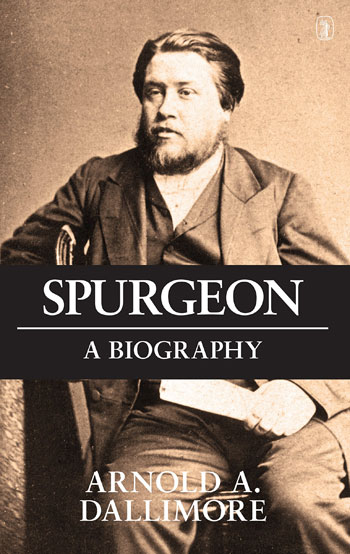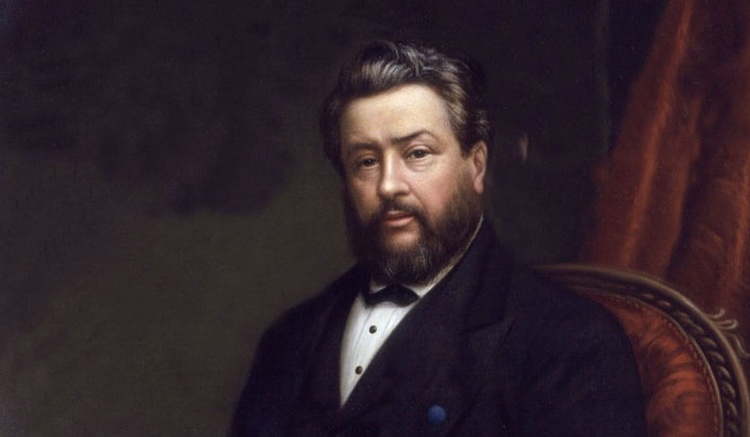I love what Cody Cunningham has to say about the humility of Charles Spurgeon, one of my great heroes. I too read and really enjoyed Dallimore’s book on Spurgeon, one of my favorites as I was writing Spurgeon’s bio to introduce my book We Shall See God. In writing that book, I became Spurgeon’s coauthor, without his permission, drawing extensively from the best of his sermons about Heaven and the New Earth and adding my own thoughts, so it’s about half and half. If the saying “it’s easier to get forgiveness than permission” ever applied, I’m confident it will when I meet Spurgeon and explain how he and I wrote a book together. :) It may help to tell him that all the royalties went to causes he would endorse! —Randy Alcorn
Spurgeon’s Humility
By Cody Cunningham
 I recently finished Arnold Dallimore’s biography of Charles Spurgeon, the Baptist preacher known as the “Prince of Preachers.” If you’re familiar at all with Spurgeon, you’ve likely heard about how gifted of an orator he was or how effective he was as an evangelist. While those traits certainly did characterize his life and ministry, there are two other traits that struck me as I read through the biography.
I recently finished Arnold Dallimore’s biography of Charles Spurgeon, the Baptist preacher known as the “Prince of Preachers.” If you’re familiar at all with Spurgeon, you’ve likely heard about how gifted of an orator he was or how effective he was as an evangelist. While those traits certainly did characterize his life and ministry, there are two other traits that struck me as I read through the biography.
Profound Humility
Charles Spurgeon had notoriety in this world that few, if any, pastors have ever experienced. He preached before millions of men and women, had his sermons circulated across multiple continents, and trained up an army of pastors who viewed him much like a spiritual father. In addition, the Baptist minister earned a fortune through the sales of his writings and the income generated by his speaking engagements.
Many pastors have drunk deeply from the poisonous springs of arrogance with far less popularity and influence than that of Spurgeon. Yet, the sense that I get from reading about Spurgeon’s life is not hubris, but a deep-seated humility.
One clear example of Spurgeon’s lowliness came when he was offered the teaching pastor position of New Park Street, the church in London that Spurgeon pastored for basically his whole ministry. The young preacher, who was only nineteen at the time, had originally agreed to come to New Park Street on a three months’ basis, but church members quickly urged Spurgeon to stay permanently as their pastor.
This is the young man’s response:
“There is but one answer to so loving and cordial an invitation. I ACCEPT IT.” But he continued: “I entreat of you to remember me in prayer, that I may realize the solemn responsibility of my trust. Remember my youth and inexperience, and pray that these may not hinder my usefulness. I trust also that the remembrance of these will lead you to forgive mistakes I may make, or unguarded words I may utter…Oh, that I may be no injury to you, but a lasting benefit.”
Nowadays, when pastoral candidates are speaking with a church, the flesh can make a man seem like they are near perfect. They speak of success in past ministries and of dreams for the future of this church. Yet, here we see a teenager begging for prayer, and warning that his youth will likely result in poor choices occasionally.
Utter Dependence upon Prayer
The fruit of Spurgeon’s humility was a reliance upon prayer. Seeing our sin in light of God’s infinite power and holiness leads to an acute awareness of our humble state, which leads to reliance upon prayer. Spurgeon’s life is a testimony to this golden chain of Christian humility.
Consider this anecdote from Dallimore:
Throughout his entire ministry many hearers remarked that, moved as they were by his preaching, they were still more affected by his praying. D.L. Moody after his first visit to England, being asked upon his return to America, ‘Did you hear Spurgeon preach?’ replied, ‘Yes, but better still, I heard him pray.’
It is so easy to focus on the man’s outward gifts and miss the passion and dependence upon prayer. We must not miss the implication here: We cannot expect to have a Spirit-empowered ministry if we do not possess a prayer-soaked ministry.
Public prayer is one component of a prayerful ministry, but how about private prayer? Lest you think his devotion to prayer was limited to the pulpit, consider these words from William Williams, a former student of Spurgeon’s Pastors’ College who spent a great deal of time with the famous pastor, “Mr. Spurgeon, when bowed before God in family prayer, appeared a grander man even than when holding thousands spellbound by his oratory.”
Spurgeon’s humility expressed in prayer should be applauded by us who stand upon his shoulders, but it should also be a characteristic that we pursue wholeheartedly. Our time and culture are different than Spurgeon’s day in many ways, but we still deal with the same struggles. The folks in his day, just like those in our day, too often focused on the outward without a thought about the pastor’s character. All of the recent pastoral scandals are symptoms of our unhealthy fascination with a minister’s external gifts.
What we need today in evangelicalism is not an army of preachers as gifted as Spurgeon. Rather, we need an army of leaders whose character is marked by deep humility that is demonstrated by a devotion to prayer, both private and public.
This article was originally posted on Cody's blog, and is used by permission.




